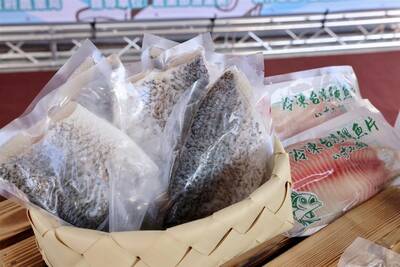A Kyrgyz state commission has concluded that former President Askar Akayev was to blame for allowing the "widespread lawlessness" that sparked a March 24 popular uprising, which led to his ouster.
The commission of Cabinet members and civic activists said the unrest, which it called the "People's Revolution," was also sparked by parliamentary elections rigged to elect a compliant legislature and extend Akayev's term.
The "main condition for the fall of the government was a widespread lawlessness at all levels of the state power and the society," the commission said.
The March uprising sent Akayev fleeing to Russia and brought former opposition leader Kurmanbek Bakiyev to power. He is now seen as a front-runner in the July 10 presidential election.
Akayev has rejected accusations that he manipulated the parliamentary vote in which his daughter and son won seats. He had also denied his refusal to hold a dialogue triggered his ouster from office.
The commission, which the new government set up to calm the country's political situation, said authorities, with Akayev's instructions, intended to rig the spring election to yield a "pocket" legislature.
"One of the reasons that caused the People's Revolution ... was unjust and fraudulent parliamentary elections," the commission said. "The true reason for the authorities' interference in the electoral process was to form a compliant majority in parliament and in the end extend Akayev's term for 5 more years."
The commission said that the concentration of power in one person's hands made the government unable to communicate with people and public institutions. It said Akayev had personally controlled the conduct of the parliamentary elections.
"The economy had worked to increase the income of the president's family and people close to him, but not for the development and state budget," it said. "The government led by Akayev had lately taken a course of usurpation of power."
The commission made a number of recommendations to improve the impoverished Central Asian nation's social and political issues, and it said next month's presidential vote would be key to rebuild the country's future.
"The readiness to hold fair and transparent presidential election is a required condition to form a new architecture of the social and political structure of Kyrgyzstan's future," it said.
Kyrgyzstan, an impoverished nation of 5 million people, was the latest former Soviet republic to face popular protests. Massive demonstrations ushered the opposition into power in Ukraine last year and in Georgia in 2003.

Taiwan's Vice President Hsiao Bi-khim (蕭美琴) said Saturday that she would not be intimidated by the Chinese Communist Party (CCP), following reports that Chinese agents planned to ram her car during a visit to the Czech Republic last year. "I had a great visit to Prague & thank the Czech authorities for their hospitality & ensuring my safety," Hsiao said on social media platform X. "The CCP's unlawful activities will NOT intimidate me from voicing Taiwan's interests in the international community," she wrote. Hsiao visited the Czech Republic on March 18 last year as vice president-elect and met with Czech Senate leadership, including

There have been clear signs of Chinese Communist Party (CCP) attempts to interfere in the nationwide recall vote on July 26 in support of Chinese Nationalist Party (KMT) legislators facing recall, an unnamed government official said, warning about possible further actions. The CCP is actively involved in Taiwanese politics, and interference in the recall vote is to be expected, with multiple Chinese state media and TAO attempts to discredit the Democratic Progressive Party (DPP) and undermine public support of their recall movement, the official said. This interference includes a smear campaign initiated this month by a pro-Beijing Hong Kong news outlet against

A week-long exhibition on modern Tibetan history and the Dalai Lama’s global advocacy opened yesterday in Taipei, featuring quotes and artworks highlighting human rights and China’s ongoing repression of Tibetans, Hong Kongers and Uighurs. The exhibition, the first organized by the Human Rights Network for Tibet and Taiwan (HRNTT), is titled “From the Snowy Ridges to the Ocean of Wisdom.” “It would be impossible for Tibetans inside Tibet to hold an exhibition like this — we can do it. because we live in a free and democratic country,” HRNTT secretary-general Tashi Tsering said. Tashi Tsering, a Taiwan-based Tibetan who has never

A first shipment of five tons of Taiwan tilapia was sent from Tainan to Singapore on Wednesday, following an order valued at NT$600,000 (US$20,500) placed with a company in the city. The products, including frozen whole fish and pre- cooked fish belly, were dispatched from Jiangjun Fishing Harbor, where a new aquatic processing and logistics center is under construction. At the launch, Tainan Mayor Huang Wei-che (黃偉哲) called the move a “breakthrough,” marking Taiwan’s expansion into the Singaporean tilapia market. Taiwan’s tilapia exports have traditionally focused on the United States, Canada, and the Middle East, Huang said, adding that the new foothold in